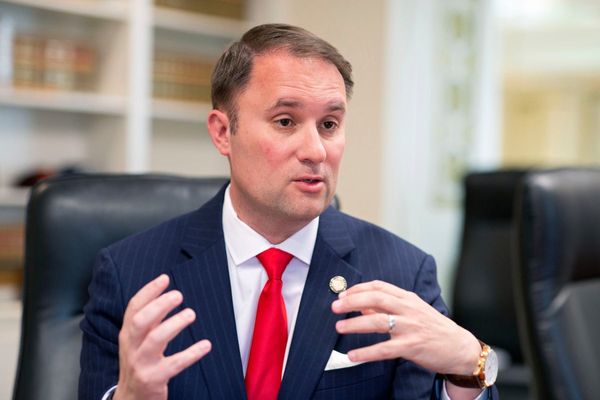
There had been feverish speculation it would be this week. The drive to Buckingham Palace, police outriders and news helicopters in tow. The lectern on Downing Street. The prime minister announcing a general election.
Tuesday is the final day Rishi Sunak could dissolve parliament if he were to send voters to the polls on 2 May, one of the key dates in the 2024 election-watchers’ diaries, when local elections are also taking place. However, after the prime minister ruled out the possibility earlier this month, the waiting game continues.
With opinion polls suggesting the Conservatives are heading for a landslide defeat, a reverse ferret would be a bold move from a prime minister who hasn’t had much luck when it comes to rolling the dice. But there are also economic reasons why Sunak might prefer to wait.
After falling into recession at the end of last year, there are clear signs Britain’s economy is on the mend. Inflation is falling, private sector activity is picking up, and retail sales remain relatively resilient. The governor of the Bank of England agrees that things are moving in the right direction, in what Sunak has termed Britain’s “bounceback” year from Covid and the cost of living crisis.
Financial markets expect Threadneedle Street to begin cutting interest rates from June, in a development that would help Sunak to further declare progress is being made on the economy.
Desperate for something to move the electoral dial, the Tories have ramped up campaigning around the fall in inflation from more than 10% a year ago to 3.4% on the latest reading, in what is the sharpest decline for almost half a century.
The obvious question then, is why isn’t the prime minister getting credit in the opinion polls? There is an obvious answer: while near-term indicators might be moving in the right direction, voters are all too aware of the bigger picture, having been through the wringer for the past few years after more than a decade of Tory government and with still only limited progress being made.
As in the US, where Joe Biden is struggling to take advantage from a booming American economy and sharp drop in inflation, Sunak is suffering from the simple fact that prices remain substantially higher than three years ago and are still rising, albeit at a slower pace. But the prime minister is in a tougher spot, with Britain suffering weaker growth and weaker disinflation.
At 3.4% in February, the annual increase in the price for an average basket of consumer goods and services remains high relative to recent history. Many everyday staples and luxuries are still rising at a rapid pace, including a 36% increase in car insurance, sugar rising by almost 18%, and package holidays by 10%.
Taking a step back from the figures for the year to February, average prices have soared by more than 20% over a wider three-year time span, with a much bigger leap of about 90% for electricity, gas and other fuels. Food prices – keenly noticed by consumers – have jumped 30%: the same level of increase as recorded over the preceding 15 years, packed into just three.
Some of the pressure will ease from April with an expected fall in household energy bills after a decline in wholesale prices, while Jeremy Hunt’s second 2p cut in national insurance will take effect. Average wage growth also remains robust. But there are myriad ways people are still feeling the pinch.
Next week, millions of consumers will be whacked with inflation-busting mobile phone and broadband price rises of up to 8.8%. With local government in crisis and a refusal among Tory ministers to fix the problem, the average council tax bill will go up by £100 from April. In a month that will prove pivotal in the cost of living crisis, water bills, car tax and the TV licence fee are also going up. And despite the Tory tax-cutting rhetoric, overall tax levels as a share of the economy are still rising towards the highest level since 1948.
When the Bank starts cutting interest rates it will offer relief for some households but overall borrowing costs will still remain higher than three years ago. Millions of households are still to reprice from cheaper mortgage deals, with a rate cut only softening the edges of an otherwise still painful financial hit. Meanwhile, rents are rising at the fastest pace on record.
Such is the scale of the financial hit in the cost of living crisis that real household disposable income per person is not set to return even to pre-pandemic levels until the end of 2025. This means that living standards will still be below the level at the last general election when voters return to the ballot box – the first time this has happened in modern history.
Sunak might be widely expected to bottle the decision to call a general election this week, in the hope of a better moment later this year. But if the prime minister wants to wait for voters to feel the benefits of economic progress, he could find this takes longer than his time in Downing Street will allow.







